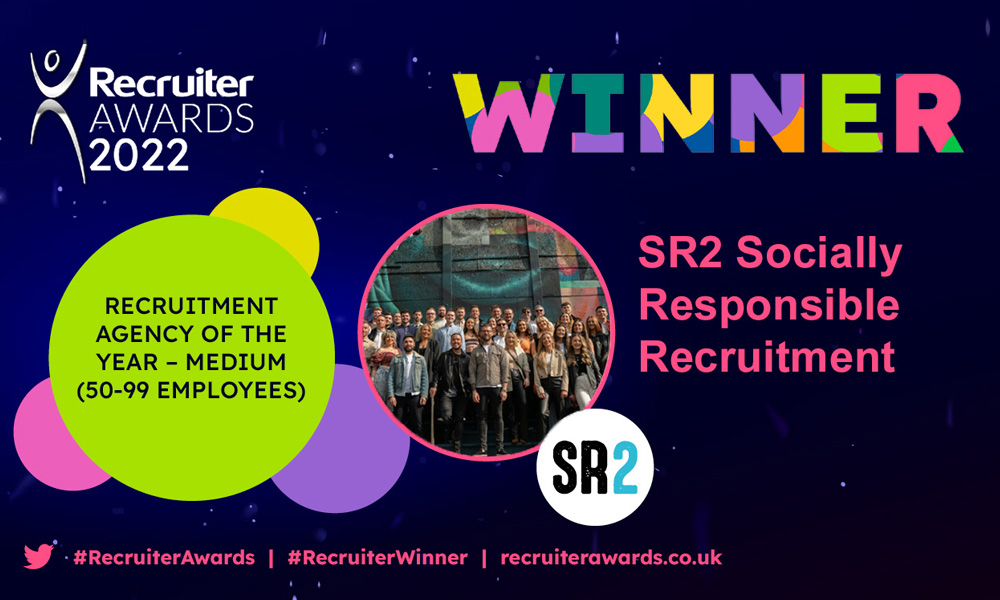10 Examples of How Recruiters Can Support Neurodivergent Candidates | Sophie
Neurodiversity celebrates the natural variation in human cognition and emphasizes that different neurological conditions, such as autism, ADHD, and dyslexia, are simply variations of the human experience. Recruiters play a crucial role in ensuring that these candidates are given equal opportunities to succeed.
I had the pleasure of speaking with Mia and Jess, Co-founders of "I Am Paying Attention" a platform that provides community support for individuals & training for organisations to work towards a fairer tomorrow for all of us. The training was so insightful and we can't wait to have them speak to the rest of the team about how, as recruiters, we can be more supportive of neurodivergent candidates.
These are a few things we talked about that could be easily put into practice during the hiring process.
Education and Awareness
Recruiters should invest time in understanding various neurodivergent conditions, their strengths, challenges, and the potential accommodations that might be needed, enabling recruiters to approach each candidate with empathy and a clear understanding of their unique needs. For example, booking a session with I Am Paying Attention!
Flexible Interview Formats
Traditional interview formats might not be the best way to assess the potential of neurodivergent candidates. Consider offering alternative interview structures, such as project-based assessments, skills demonstrations, or video submissions. This can help candidates showcase their abilities in ways that align with their strengths.
Clear Communication
Provide candidates with a detailed outline of the interview process, including what to expect in terms of questions, tasks, and assessment criteria. Clear communication helps ease any anxiety and ensures that candidates can better prepare for each stage of the process.
Extended Time for Assessments
Many neurodivergent candidates might require additional time to process information and perform at their best. Offering extended time for assessments can level the playing field and allow candidates to demonstrate their true capabilities.
Structured Interviews
Structured interviews, where all candidates are asked the same set of predetermined questions, can minimize bias and ensure fair evaluations. This approach helps assess skills and qualifications accurately, rather than being influenced by a candidate's communication style.
Focus on Strengths
Neurodivergent candidates often possess unique skills, such as exceptional attention to detail, pattern recognition, or creative problem-solving abilities. Recruiters should focus on identifying and leveraging these strengths, aligning them with the requirements of the role.
Sensitivity to Sensory Issues
Certain neurodivergent individuals might experience sensory sensitivities. During interviews or onboarding processes, consider creating a sensory-friendly environment by minimising distractions, loud noises, or overly bright lighting.
Accommodations and Accessibility
Provide a platform for candidates to discuss any accommodations they might require during the hiring process. This might include changes to the interview setting, the provision of written materials in advance, or the availability of assistive technologies.
Inclusive Language in Job Descriptions
Craft job descriptions using clear and concise language, avoiding jargon and ambiguous terms such as "Strong communication skills required". - This term is ambiguous because it doesn't clearly define what specific communication skills are needed for the role. It could encompass a wide range of abilities such as verbal communication, written communication, presentation skills, interpersonal skills, and more.
Use inclusive language to attract a diverse pool of candidates and encourage applications from all backgrounds.
Ongoing Support and Feedback
Once a neurodivergent candidate is hired, the support doesn't stop. Regular check-ins, feedback sessions, and open communication channels can help create an inclusive and supportive work environment.
In summary, empathy, understanding and putting the work in is key for recruiters to help build workforces that truly celebrate the diversity of human minds.
By Sophie Eadon
 US
US DE
DE


